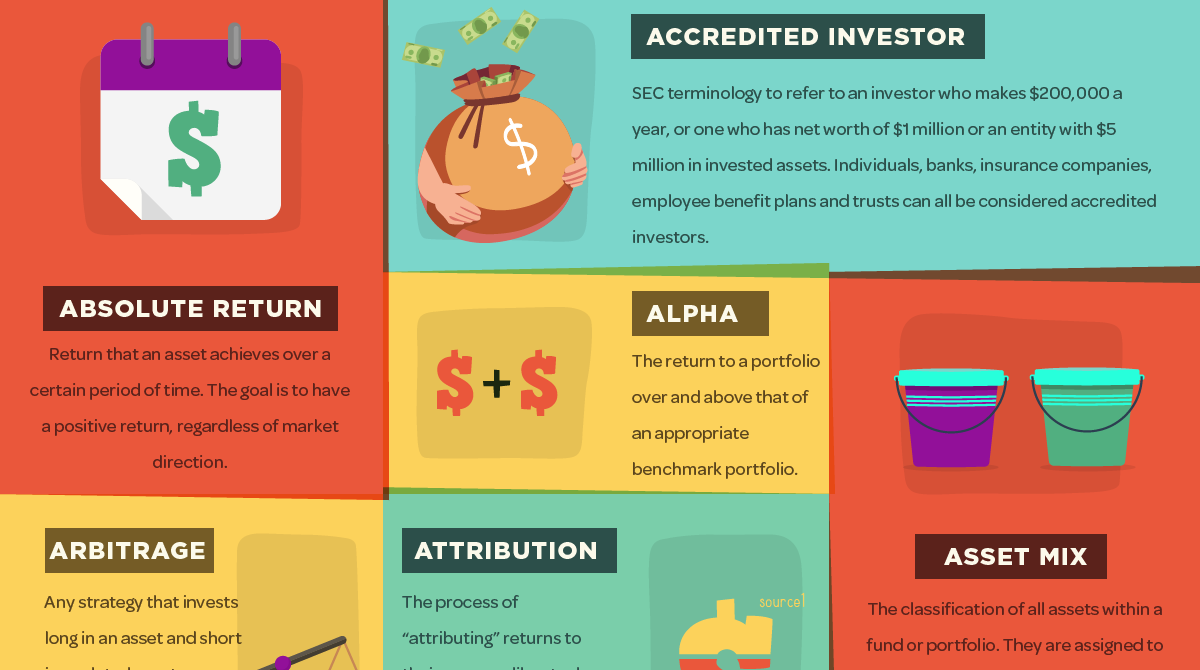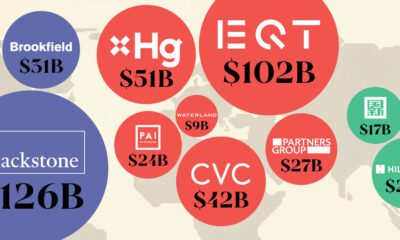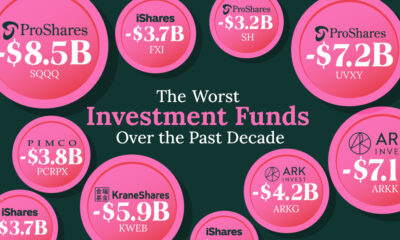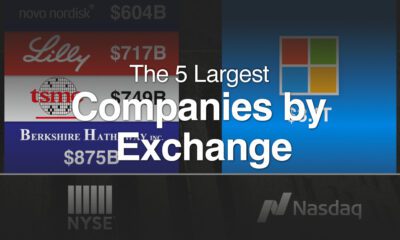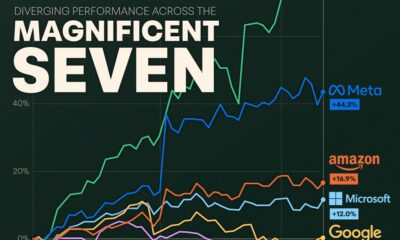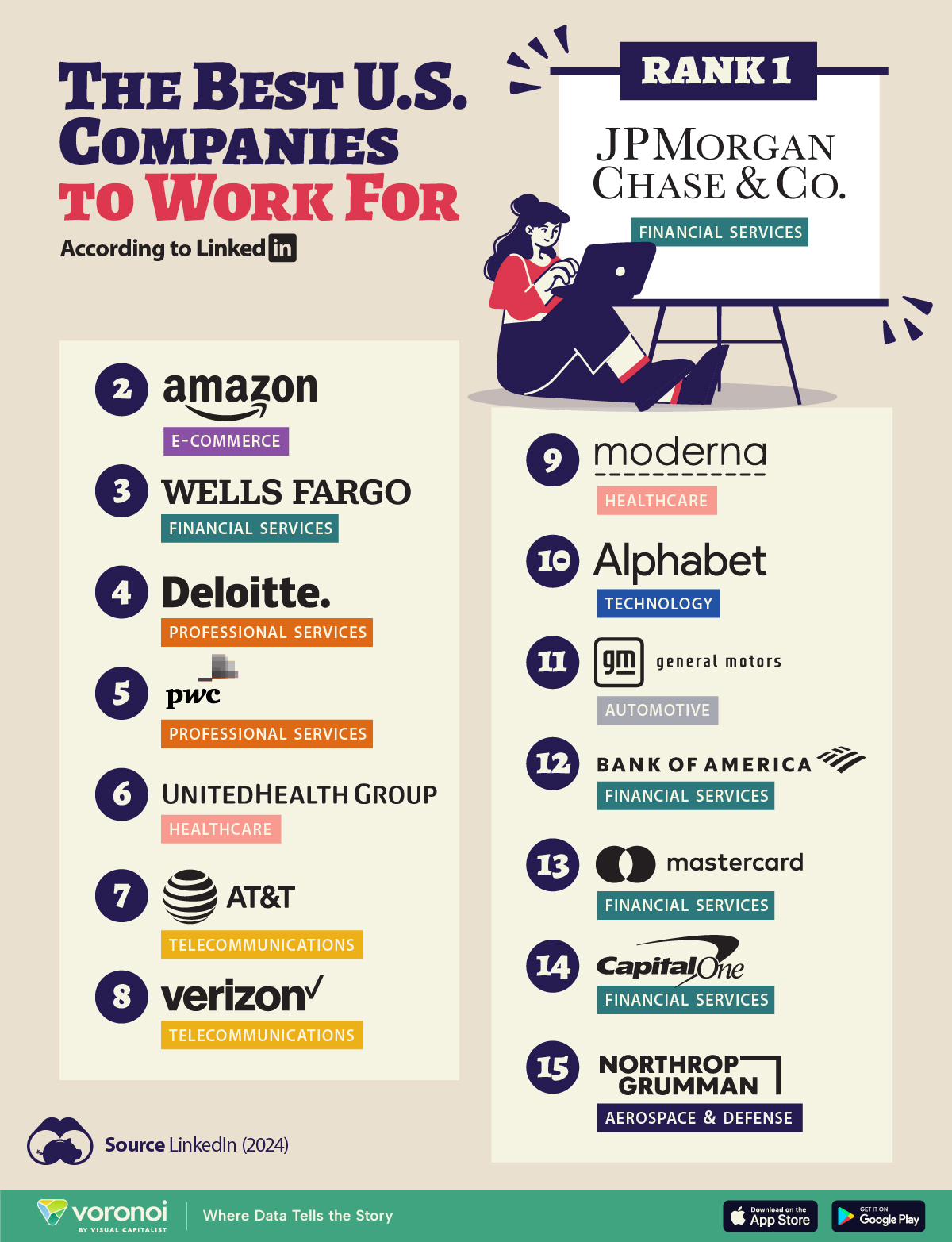Markets
Here’s 48 Hedge Fund Terms Every Investor Should Know

Here’s 48 Hedge Fund Terms Every Investor Should Know
For many investors, hedge funds appear to be shrouded in mystery.
There’s a practical reason for this. The best hedge funds are extremely careful about protecting their ideas and tactics, because they provide an important competitive advantage for making profits. An example that illustrates the paranoia around this was described in Flash Boys by Michael Lewis, where he noted that at the ultra-secretive firm Citadel, it took five ID card swipes for an employee to simply start her day.
There’s also a psychological reason for the secrecy – which is that hedge funds want to appear incredibly complex and sophisticated, so that accredited investors will part with their money in order to get exposure to them. While hedge fund tactics are often intricate and extremely lucrative, understanding how they work is not as impenetrable as it may seem.
Hedge Fund Terms Investors Should Know
Today’s infographic comes to use from StocksToTrade, and it captures 48 terms that can serve as an entry point for any investor into the mysterious world of hedge funds.
It covers essential ideas around how hedge funds make their bets, such as: arbitrage, hedging, pairs trading, alpha, and beta. The infographic also looks at hedge fund terms around measuring performance and risk, as well as words that describe fee structures and payouts.
Interestingly enough, we live during a time when modern technology has also allowed retail investors more access to these types of tactics than ever before. Take a look at this infographic on alternative investments, which gives examples of ETFs and mutual funds that mimic traditional hedge fund strategies such as long/short equity, merger arbitrage, or managed futures.
Want to learn more about how hedge funds work?
This post on WallStreetMojo outlines nine popular hedge fund strategies, or check out our favorite book on global macro investing: Inside the House of Money by Steven Drobny.
Markets
The Best U.S. Companies to Work for According to LinkedIn
We visualized the results of a LinkedIn study on the best U.S. companies to work for in 2024.
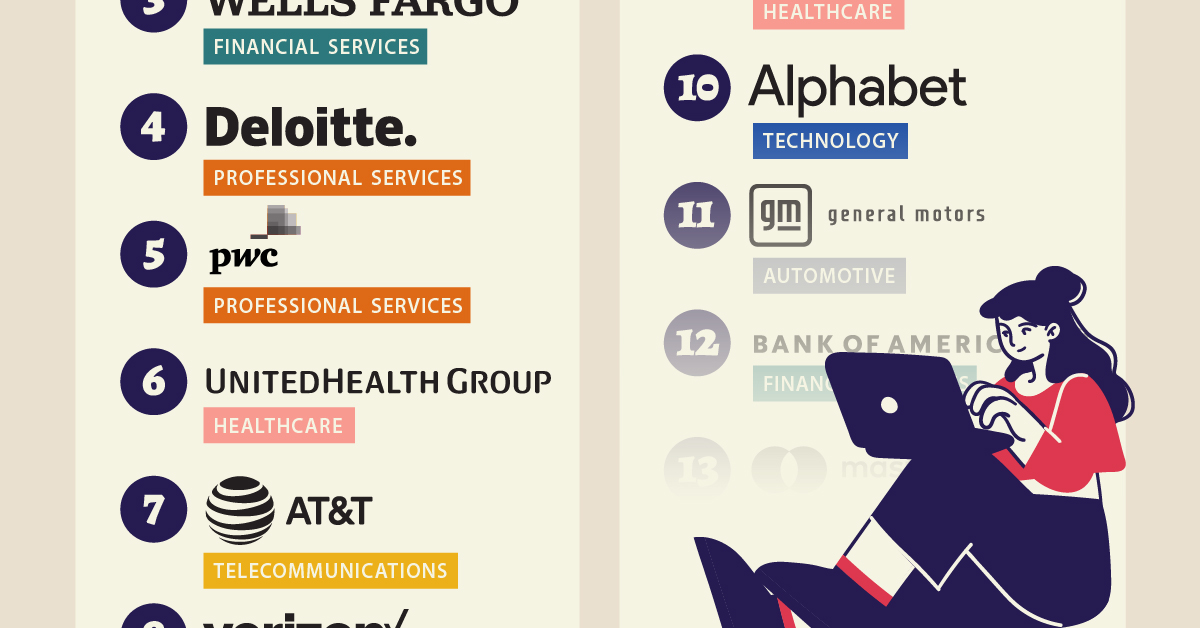
The Best U.S. Companies to Work for According to LinkedIn
This was originally posted on our Voronoi app. Download the app for free on iOS or Android and discover incredible data-driven charts from a variety of trusted sources.
In this graphic, we list the 15 best U.S. companies to work for in 2024, according to LinkedIn data.
LinkedIn ranked companies based on eight pillars: ability to advance, skills growth, company stability, external opportunity, company affinity, gender diversity, educational background, and employee presence in the country.
To be eligible, companies must have had 5,000 or more global employees, with at least 500 in the country as of December 31, 2023.
Data and Highlights
Financial institutions dominate the ranking of the best U.S. companies to work for in 2024, with JP Morgan Chase & Co. ranking first.
| Rank | Company | Industry |
|---|---|---|
| 1 | JP Morgan Chase & Co. | Financial Services |
| 2 | Amazon | E-commerce |
| 3 | Wells Fargo | Financial Services |
| 4 | Deloitte | Professional Services |
| 5 | PwC | Professional Services |
| 6 | UnitedHealth Group | Healthcare |
| 7 | AT&T | Telecommunications |
| 8 | Verizon | Telecommunications |
| 9 | Moderna | Pharmaceuticals |
| 10 | Alphabet Inc. | Technology |
| 11 | General Motors | Automotive |
| 12 | Bank of America | Financial Services |
| 13 | Mastercard | Financial Services |
| 14 | Capital One | Financial Services |
| 15 | Northrop Grumman | Aerospace & Defense |
J.P. Morgan has a program that offers opportunities for candidates without a university degree. In fact, in 2022, 75% of job descriptions at the bank for experienced hires did not require a college degree.
Meanwhile, Deloitte and Amazon offer a variety of free training courses, including in AI.
Moderna includes in its employee package benefits to help avoid employee burnout — from subsidized commuter expenses and pop-up daycare centers, to wellness coaches.
Mastercard offers flexible work availability, with 11.5% remote and 89% hybrid options.
It’s also interesting to note that only Amazon and Alphabet made the cut from the ‘Magnificent Seven’ companies (Apple, Microsoft, Google parent Alphabet, Amazon, Nvidia, Meta Platforms, and Tesla).
See more about the best companies to work for in this infographic, which covers a separate ranking from Glassdoor.
-
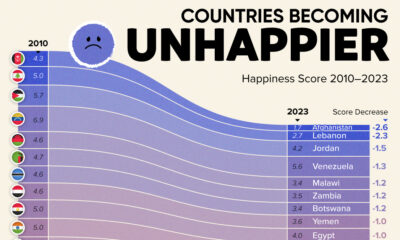
 Demographics6 days ago
Demographics6 days agoThe Countries That Have Become Sadder Since 2010
-

 Green2 weeks ago
Green2 weeks agoRanked: The Countries With the Most Air Pollution in 2023
-

 Green2 weeks ago
Green2 weeks agoRanking the Top 15 Countries by Carbon Tax Revenue
-
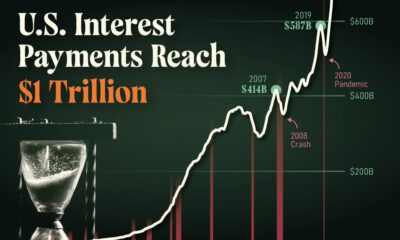
 Markets2 weeks ago
Markets2 weeks agoU.S. Debt Interest Payments Reach $1 Trillion
-

 Mining2 weeks ago
Mining2 weeks agoGold vs. S&P 500: Which Has Grown More Over Five Years?
-

 Energy2 weeks ago
Energy2 weeks agoThe World’s Biggest Nuclear Energy Producers
-
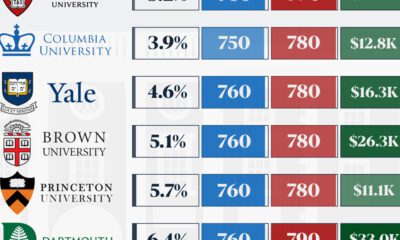
 Misc2 weeks ago
Misc2 weeks agoHow Hard Is It to Get Into an Ivy League School?
-
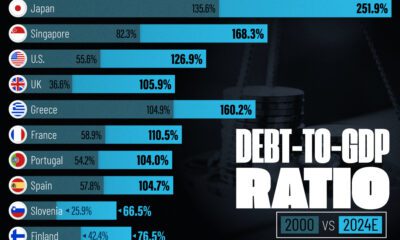
 Debt2 weeks ago
Debt2 weeks agoHow Debt-to-GDP Ratios Have Changed Since 2000

